Puerto rico flora: Flora of Puerto Rico and the Virgin Islands
Puerto Rico and Virgin Islands Native Plant Species’s Check List · iNaturalist
View
Plain
Taxonomic
Photo
The species list for Puerto Rico and Virgin Islands Native Plant Species
Taxa manually added by project curators and taxa represented by
research-grade observations added to the project are listed on project lists.
Add an Observation
Antillean Crescent
(Antillea pelops)
0 comments
Add an Observation
Stick Insects
(Order Phasmida)
0 comments
Add an Observation
Plants
(Kingdom Plantae)
0 comments
Add an Observation
Ferns
(Class Polypodiopsida)
0 comments
Add an Observation
Adder’s-Tongues
(Genus Ophioglossum)
0 comments
Add an Observation
Dicots
(Class Magnoliopsida)
0 comments
Add an Observation
Desert Senna
(Senna polyphylla)
0 comments
Add an Observation
Sensitive and Partridge Peas
(Genus Chamaecrista)
0 comments
Add an Observation
Sensitive Pea
(Chamaecrista nictitans)
0 comments
Add an Observation
Chamaecrista glandulosa
0 comments
Add an Observation
Butterfly Pea
(Centrosema virginianum)
0 comments
Add an Observation
Sentro
(Centrosema pubescens)
0 comments
Add an Observation
Neorudolphia volubilis
0 comments
Add an Observation
Securidaca virgata
0 comments
Add an Observation
Jujubes
(Genus Ziziphus)
0 comments
Add an Observation
West Indian Laurel Fig
(Ficus americana)
0 comments
Add an Observation
Scratchbush
(Urera baccifera)
0 comments
Add an Observation
Clearweed
(Genus Pilea)
0 comments
Add an Observation
Verdolaguilla
(Pilea parietaria)
0 comments
Add an Observation
Artillery Plant
(Pilea microphylla)
0 comments
Add an Observation
Guadeloupe Marlberry
(Ardisia obovata)
0 comments
Add an Observation
Bully Trees
(Genus Sideroxylon)
0 comments
Add an Observation
Genus Marcgravia
0 comments
Add an Observation
Marcgravia umbellata
0 comments
Add an Observation
Giant Milkweed
(Calotropis procera)
0 comments
Add an Observation
Hammock Viper’s-Tail
(Pentalinon luteum)
0 comments
Add an Observation
Pinochia corymbosa
0 comments
Add an Observation
Madder Family
(Family Rubiaceae)
0 comments
Add an Observation
West Indian Milkberry
(Chiococca alba)
0 comments
Add an Observation
Black Torch
(Erithalis fruticosa)
0 comments
Add an Observation
Gonzalagunia hirsuta
0 comments
Add an Observation
Genus Rondeletia
0 comments
Add an Observation
Rondeletia inermis
0 comments
Add an Observation
Coccocypselum herbaceum
0 comments
Add an Observation
Palicourea croceoides
0 comments
Add an Observation
Psychotria glabrata
0 comments
Add an Observation
Cana Gorda Girdlepod
(Mitracarpus polycladus)
0 comments
Add an Observation
Cana Gorda Girdlepod
(Mitracarpus polycladus)
0 comments
Add an Observation
Cactus Family
(Family Cactaceae)
0 comments
Add an Observation
Sebucan
(Leptocereus grantianus)
0 comments
Add an Observation
Strawberry Pear
(Selenicereus triangularis)
0 comments
Add an Observation
Genus Pilosocereus
0 comments
Add an Observation
Royen’s Tree Cactus
(Pilosocereus royenii)
0 comments
Add an Observation
Turk’s Cap Cactus
(Melocactus intortus)
0 comments
Add an Observation
Mistletoe Cactus
(Rhipsalis baccifera)
0 comments
Member of the iNaturalist Network
|
Powered by iNaturalist open source software
|
Documentation for developers
El Yunque National Forest – Nature & Science
Photo © 2006 – B. Navez
Navez
Puerto Rico Raintree (Eng.), (no Spanish common name),
Brunfelsia portoricensis (Sci.) endemic plant, Luquillo mountains, Puerto Rico.
Information compiled by Alan Mowbray, USDA Forest Service,
El Yunque National Forest – 2010.
General Information:
Group- Asterids, Order- Solanales, Family- Solanaceae, Genus- Brunfelsia, Species– B. portoricensis. Rare, endemic flowering shrub/small tree – Luquillo Forest.
Description:
Brunfelsia portoricesis is an evergreen shrub or small tree from 3 to 10 feet (0.9 to 3 meters) high – rarely growing to 15 feet (4.5 meters), with a typical trunk diameter of 3 inches (7.6 centimeters). It can be easily recognized by its elliptical, thick and leathery leaves, 3 to 6 inches (7.6 to 15 centimeters) long, shiny-green on top and dull light-green on the bottom. Flowers are large, white, 4 inches (10 centimeters) in diameter, with five rounded petals approximately 2 ½ inches (6. 3 centimeters) across, and yellow-rounded fruit 1 to 1 ¼ inch (2.5 to 3 centimeters) in diameter.
3 centimeters) across, and yellow-rounded fruit 1 to 1 ¼ inch (2.5 to 3 centimeters) in diameter.
Habitat:
The Puerto Rico Raintree is known solely from the Luquillo Mountains of eastern Puerto Rico where it rarely occurs in the lower El Yunque National Forest at elevations from 1,500 to 1,800 feet (450 to 540 meters).
Threats:
Threatened by habitat loss, this species is listed as Threatened on the IUCN “Red List” of endangered species.
Additional Information:
Tropical Vegetation Specialist
USDA Forest Service
El Yunque National Forest
HC-01 Box 13490
Rio Grande, PR 00745
Telephone: 787 888 1810
|
Sintenis’ Guava
|
Puerto Rico Zephyr Lily
|
Puerto Rico Raintree
|
|
Eugenia eggersii
|
Myrica holdrigeana
|
Ravenia urbanii
|
|
Saintedwood
|
Schwanecke’s Logwood
|
Marlierea sintenisii
|
Alerts & Warnings
- El Yunque is partially open after Hurrican Fiona
- El Yunque reabre parcialmente tras el huracán Fiona
- Cierre debido a tormenta tropical / Closure due to tropical storm
- Partial closure for emergency work on PR-186
- Cierre parcial por trabajos de emergencia en la PR-186
- Bisley Road/Trail closed for construction works
- Carretera/Vereda Bisley cerradas por trabajos de construcción
- Rd 9938 Repairs – Closed to Vehicles / Pedestrian Access to Mt.
 Britton Trail
Britton Trail - Reparaciones en Rd 9938 – Cerrado a vehículos / Acceso peatonal a Mt Britton
- Main Recreation Area Open by Reservation
- Principal Área Recreativa Abierta Por Reservación
- COVID-19
View All Forest Alerts
The Conqueror read online Esmeralda Santiago (Page 12)
She often accompanied her hostess to the city and to other farms when Dona Benigna visited acquaintances. Those were amazed at how well Flora was trained. Naturally, they did not tell the maid: whites do not praise slaves. Sometimes she heard the women talking about her through the half-open doors, or the girl heard the gossip of the whites when she waited on them.
“They turn up their noses at praise, and you know what that can lead to,” said Dona Benigne, one of the ladies. “No, my dear, don’t tell Flora about her progress. On the contrary, scold her, beat her and try in every way to make her understand who is the master and who is the slave. As soon as a slave thinks that he is better than others, he begins to consider himself equal to whites and demand the same rights. Look what happened to Haiti. nine0003
By then Flora already knew “what happened to Haiti”. Following the setting sun, she would have reached there in a few days, which she did not have enough. Haiti occupied the western part of the island of Hispaniola, where the second owner of the girl lived. Instead of fleeing by sea, the slaves rose up against their masters and won their freedom. After Flora was sold in Puerto Rico, the slaves on the other side of the Hispaniola mountain range also rebelled, and now both Haiti and Santo Domingo were free. Whites left Hispaniola for Puerto Rico with their slaves, but many managed to escape. The slaves built bamboo rafts and set off towards the setting sun and freedom. Whether they made it there or perished is unknown. Or perhaps they were captured and returned to their owners. nine0003
The slaves built bamboo rafts and set off towards the setting sun and freedom. Whether they made it there or perished is unknown. Or perhaps they were captured and returned to their owners. nine0003
In her thirty years of work for Don Felipe and Dona Benigno, Flora saw how many people came to Puerto Rico from Venezuela, the Dominican Republic, Colombia, Peru. These new immigrants were loyal to the Crown and felt safe here. Whenever news came of another war of independence or rebellion on other islands or in any part of Puerto Rico, a myriad of marching soldiers would immediately appear. The military was located right in the center of the city and staged exercises. The plumes on their hats fluttered, their sabers clanged, their horses neighed. The authorities organized local militia detachments: every free man had to appear weekly on the parade ground, where he was trained to repel the attacks of those who wanted to turn Puerto Rico into an independent state, following the example of other countries of Spanish America. The militia and the military were also training to put down riots, because the whispered words “independence” and “abolitionism” always sounded together. nine0003
The militia and the military were also training to put down riots, because the whispered words “independence” and “abolitionism” always sounded together. nine0003
If a slave reported that other slaves were preparing an escape or rebellion, he received a reward and freedom. The instigators were seized and killed, while the rest were whipped or maimed. The new elite and veterans of the Hispaniola and South American wars were determined to keep Puerto Rico for the Spanish Crown. The printed word and oral speech were subjected to careful control and strict censorship. Commitment to the idea of independence of Puerto Rico, expressed even in a private conversation, was punishable by expulsion from the island. nine0003
By the time the Argoso family arrived on the island in 1844, only two colonies remained in the once vast Spanish Empire. Everyone else gained independence and slavery was abolished there. The only exceptions were Cuba and Puerto Rico.
Flora cared for dona Benigna through her four pregnancies and helped raise her three surviving children.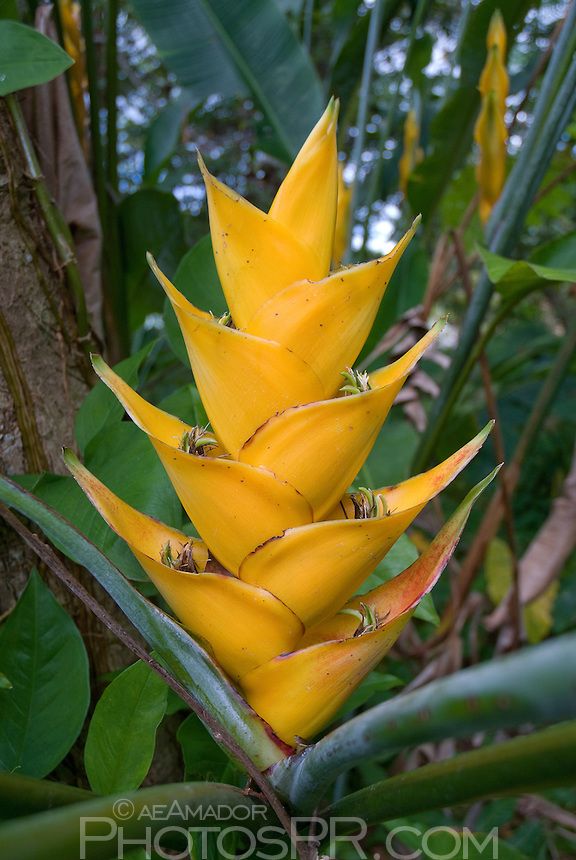 By that time, the town of Ponce, which was located on the Caribbean coast of Puerto Rico, had turned into a big city and crept right up to Don Felipe’s house. The owners of Flora were now rich, their children grew up, stood firmly on their feet, and, noticing the gray hair in their hair, Don Felipe and Dona Benigna spoke with nostalgia about Spain. They sold the house, and on the day the owners left, the slaves were driven into the city. There, on the square, at the auction, Severo bought the now forty-year-old Flora. nine0003
By that time, the town of Ponce, which was located on the Caribbean coast of Puerto Rico, had turned into a big city and crept right up to Don Felipe’s house. The owners of Flora were now rich, their children grew up, stood firmly on their feet, and, noticing the gray hair in their hair, Don Felipe and Dona Benigna spoke with nostalgia about Spain. They sold the house, and on the day the owners left, the slaves were driven into the city. There, on the square, at the auction, Severo bought the now forty-year-old Flora. nine0003
In the very first days after the arrival of the new owners on the plantation of Los Hemelos, Flora saw Don Ramón and Don Inocente’s keen interest in women. She was already old and was glad that she would not attract their attention, but she noticed with what greed they looked at women and girls, despite the youth and ardor of the hostess. The floor of the second floor of the casona served as the ceiling of the room where Flora and Martha slept. Almost every night Flora heard the muffled thump with which a man thrusts himself into a woman, and finally a groan. Her hearing was as sharp as her eyesight. And although Don Ramon and Don Inocente resembled each other in appearance and voice, Flora caught the high notes of one and the low timbre of the other. She also noticed Don Ramon’s relaxed movements and Don Inocente’s composure. She saw Don Inocente leave the matrimonial bedroom, and by some signs she guessed that the brothers were visiting her in turn. At first, Flora did not know if the seigneur’s brothers were different and if the twins were deceiving her, but after a couple of days she was convinced that dona Ana was aware of what was happening. nine0003
Her hearing was as sharp as her eyesight. And although Don Ramon and Don Inocente resembled each other in appearance and voice, Flora caught the high notes of one and the low timbre of the other. She also noticed Don Ramon’s relaxed movements and Don Inocente’s composure. She saw Don Inocente leave the matrimonial bedroom, and by some signs she guessed that the brothers were visiting her in turn. At first, Flora did not know if the seigneur’s brothers were different and if the twins were deceiving her, but after a couple of days she was convinced that dona Ana was aware of what was happening. nine0003
Flora watched Don Ramon, Don Inocente, Dona Ana, noticed how Don Severo was looking at this trinity, and shook her head. At first, she was worried if there were too many owners on the plantation, but then she became convinced that there was only one, and all the rest only obeyed her.
“… WHO HAVE BEEN CAPTIVED BY THE TROPICS”
Ana worked harder than ever, but four months after her arrival at the plantation, she still did not complain and asked little of God during evening prayers. She was grateful that evening had come and rejoiced at what she had accomplished in the long day. The loneliness of childhood and teenage passions seemed like an old dream, and the hours spent in the estate and the grandfather’s library were seen as preparation for a future life. She easily put up with the current inconveniences and, without giving up, struggled with the hardships of life, deprived of the luxury that she once took for granted. And the more obstacles stood in her way, the stronger was her belief that Los Hemelos Hacienda was her destiny. Dona Leonora’s warnings, her mother’s fears about the possible dangers that lay in wait for her daughter on the other side of the ocean, Ana’s own fears when she entered the house built so close to the sugar factory – all this now seemed as distant and unreal as Don Hernan’s diaries when she first opened them. nine0003
She was grateful that evening had come and rejoiced at what she had accomplished in the long day. The loneliness of childhood and teenage passions seemed like an old dream, and the hours spent in the estate and the grandfather’s library were seen as preparation for a future life. She easily put up with the current inconveniences and, without giving up, struggled with the hardships of life, deprived of the luxury that she once took for granted. And the more obstacles stood in her way, the stronger was her belief that Los Hemelos Hacienda was her destiny. Dona Leonora’s warnings, her mother’s fears about the possible dangers that lay in wait for her daughter on the other side of the ocean, Ana’s own fears when she entered the house built so close to the sugar factory – all this now seemed as distant and unreal as Don Hernan’s diaries when she first opened them. nine0003
The next morning after Easter Sunday, Ana and Martha were inspecting the food in the pantry.
“Señora,” Flora ran in screaming, “guests!
“I’m not expecting anyone,” Ana was surprised and looked out the door.
Jacobo led two strong, well-fed horses to the stable.
“I’ll help you, señora,” said Flora, untying Ana’s apron. — I’ll wipe your face.
She brushed the flour off her mistress’s cheek and straightened out the stray strands. Then she straightened Ana’s skirt and dusted it off. nine0003
Ramon appeared in the yard accompanied by a man and a woman. Both were a head taller than him and at least twice as thick. The man looked like an egg on stilts. A tiny head crowned an oval body, from which protruded short plump arms and disproportionately long thin legs. As if to help keep his balance, nature gave him huge feet. The man did not walk, but hobbled, twisting his feet and catching up with the giant belly that carried him forward. The woman was just as round and clumsy and rolled towards the house, sweeping the ground with her wide skirts. nine0003
Ramón introduced them as his closest neighbors, the spouses Luis Manuel Morales and Faustina Moro de Morales. They owned the San Bernabé farm, where they grew vegetables and fruits to sell in the city markets and to supply neighboring plantations with the staples of the slave diet: cassava, breadfruit, vegetable bananas, sweet potatoes, and corn.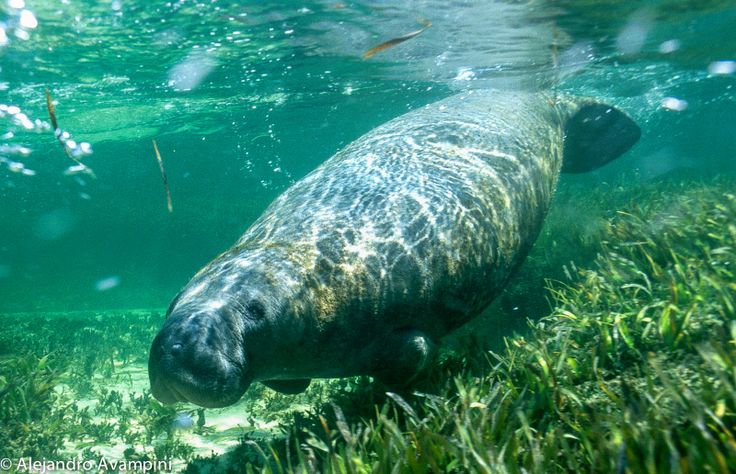
— What a pleasure to meet you! Faustina said in her gurgling voice, as if holding back her laughter. — Sorry for not arriving earlier, but we knew how busy Safra was…
– Thank you. It was so delicate of you to wait until things had more or less calmed down.
Ana showed the guests to the living room. She was offended by their frank evaluative views. It was as if Ana saw each piece of her meager furnishings again: the shabby benches and the single table. Faustina noticed the rough walls and floors, the pale green paint, and the bare interior.
“As you can see,” Ana said, “we live modestly. Her own apologies irritated her. nine0003
“Don’t worry, please,” Faustina said. “We are all pioneers in the wilds here and have to adapt to circumstances.
“When we first arrived,” Louis added, “we lived in a palm-leaf-roofed hut with an earthen floor, similar to the shacks of the gibaros.
— You’ve been here for about ten years, right? Ramon asked.
“More,” Faustina answered, “nearly thirteen.
– You have achieved a lot during this time. Ramon turned to Ana. “Their farm is the epitome of elegance and productivity. nine0003
“You are too kind,” Louis said. “But it took years.
— Don Luis knew my uncle,” Ramon said, “and told him about this land…
— I would buy it myself,” Luis interrupted, “but we couldn’t afford it…
Faustina cleared her throat. Just at that moment, Flora came in with lemonade, followed by Martha bringing in a tray of crackers, cheese, and papaya chunks. Both women had time to straighten their aprons and tuck their blouses into their skirts. Flora built a new, yellow turban on her head, tying it with a smart bow. Ana felt grateful to the maid for the fact that she often guessed her desires, she did not need as much guidance as others. Flora even placed a cheerful bouquet of hibiscus flowers in the center of the tray. nine0003
Faustina cast a disapproving glance at the cups of polished coconut shells, the tray of bamboo and palm leaves, and the heavy earthenware jug.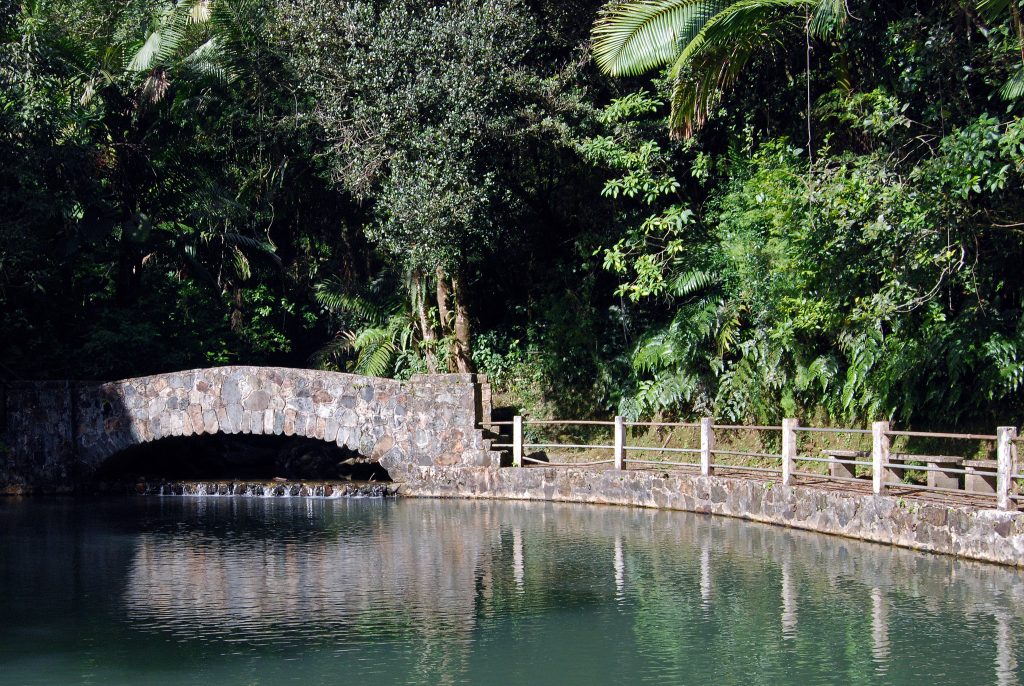 In retaliation, Ana handled the coarse utensils with such grace and delicacy, as if she were handling fine china and crystal.
In retaliation, Ana handled the coarse utensils with such grace and delicacy, as if she were handling fine china and crystal.
While sipping drinks, they made small talk, although Ana’s head was full of household chores. Did she lock the pantry and the liquor cabinet before going outside? It was the middle of the morning, which meant that the guests would stay for lunch and a short siesta. They will have to rest in the hammocks in Inocente’s room. Then, before they leave, it will be necessary to serve a snack. Guests will have to spend the whole day. nine0003
“Ladies, we will leave you so that you can get to know each other better,” Ramon interrupted her thoughts. “I want to show Don Luis the factory. We’ll be back for lunch.
The men left, and Faustina seemed glad that they were left alone.
“There are interesting families around here,” she said, “but it’s hard to keep in touch with them. The distances seem to be short, but the roads, as you have no doubt noticed, are terrible, or they don’t exist at all.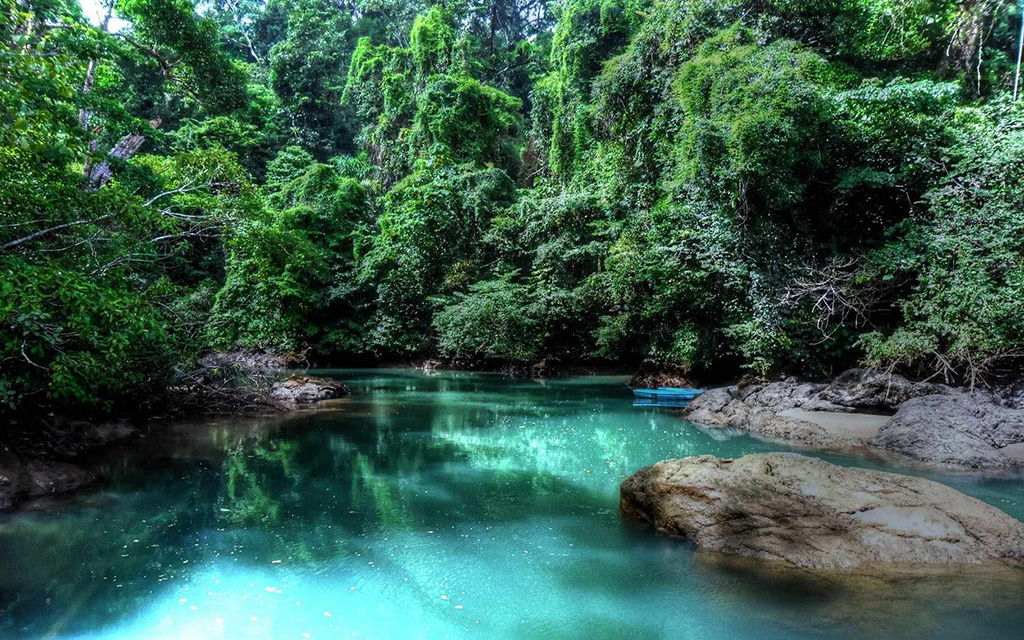
– No, I didn’t notice. I have never left the hacienda. nine0003
— Yes, safra robs planters of all their strength. We farmers are not so busy. Do you mind, dear, if I work while we talk?
Faustina took a pouch out of her pocket and began to crochet the finest pattern.
Ana pulled a basket full of laundry in need of mending.
— Did you know Don Rodrigo?
– A wonderful person. We will always be grateful to Don Rodrigo, peace be upon him, and we are always ready to provide friendly support to members of his family. nine0003
– Thank you.
– Our parents fled to Puerto Rico from Santo Domingo with little or no money after the country was invaded by the Haitians in 1822. Faustina looked up from her work to make sure Ana understood what was being said.
She nodded, but the guest continued the story, not wondering if the interlocutor was familiar with the details or not:
– The Haitian occupation government freed our slaves, and then followed the confiscation and nationalization of farms and plantations. The parents were lucky: they managed to escape, saving some of the funds that allowed them to start all over again. Luis and I met in Mayaguez, where almost all of our relatives now live. Faustina put down her knitting and looked up at the hills north of Los Jemelos. “Like you,” she continued, “we came here with little money and a huge supply of energy. Of course, at first everything is not enough. She paused, waiting for Ana’s reaction, but Ana was busy fixing the laundry. “Don Rodrigo gave us a loan for the construction of San Bernabé and was sympathetic to our delay in payment. He asked Louis to look after this land. Faustina turned the knitting over without looking. “He loved his nephews very much and hoped that one day they would come and live here. nine0003
The parents were lucky: they managed to escape, saving some of the funds that allowed them to start all over again. Luis and I met in Mayaguez, where almost all of our relatives now live. Faustina put down her knitting and looked up at the hills north of Los Jemelos. “Like you,” she continued, “we came here with little money and a huge supply of energy. Of course, at first everything is not enough. She paused, waiting for Ana’s reaction, but Ana was busy fixing the laundry. “Don Rodrigo gave us a loan for the construction of San Bernabé and was sympathetic to our delay in payment. He asked Louis to look after this land. Faustina turned the knitting over without looking. “He loved his nephews very much and hoped that one day they would come and live here. nine0003
— Really?
— Yes, of course. Luis visited Don Rodrigo in his huge new house…” The guest sighed. “Life is a tricky thing. He died so young! He wasn’t even fifty…
“His death was a big blow to his family,” Ana said.
“Peace be upon him,” Faustina repeated, making the sign of the cross.
“So Don Luis knew him well,” Ana summed up.
“Yes,” Faustina confirmed. He considered these lands promising. The fifteen cuerdas we’re on right now turned out to be the first investment. The previous owner built a kasona, a trapiche and a brewhouse. He had six sons. nine0003
— And everyone lived in this house?
“Well, they were different than you and me,” Faustina explained. – He lived with one of his slaves, but did not give her freedom. He did not let his sons go free either. She turned the knitting over again. “The customs are completely different here.
Ana wondered how Faustina would react if she found out about her relationship with the twins.
“Unfortunately,” the guest continued, “they were all partial to alcohol. There were rumors that they drank more rum than they supplied to the market. She laughed. “When the woman died, he lost the meaning of life. He began to drink even more, stopped coping with work.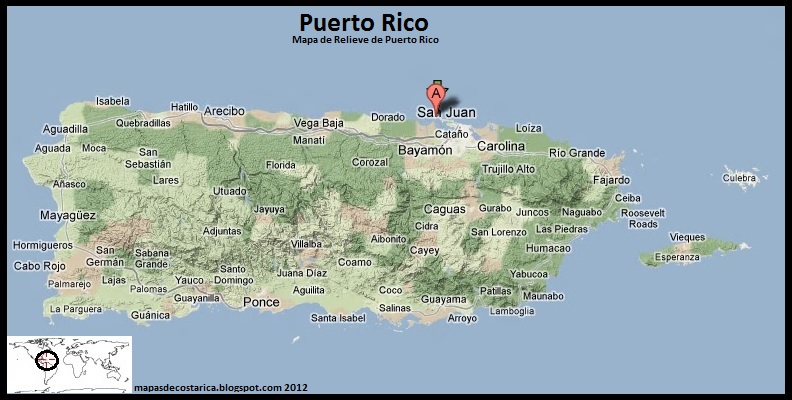 Started playing. He needed money, and he began to sell slaves, eventually sold his sons. They ended up in different parts of the island, as he chose good hosts for them. Faustina glanced at Ana, then lowered her eyes. – Terrible …
Started playing. He needed money, and he began to sell slaves, eventually sold his sons. They ended up in different parts of the island, as he chose good hosts for them. Faustina glanced at Ana, then lowered her eyes. – Terrible …
“It’s hard to imagine such a thing…” Ana didn’t know the history of the hacienda. – But when we arrived, there were slaves here…
– Don Rodrigo did not want the work to stop, but he could not leave his business, so he hired Luis to look after here. We sold him several slaves and appointed one of our overseers as mayordomo. Louis did what he could, but managing both the farm and the plantation was not easy. We thought that after the death of Don Rodrigo all the property would be sold, and we were delighted when we learned that his nephews were coming …
Faustina spoke, and Ana’s face became more and more gloomy, but she managed to remain silent. She realized that their old, crippled slaves had been sold to the late Don Rodrigo by Don Luis, while he kept the young and healthy ones for himself.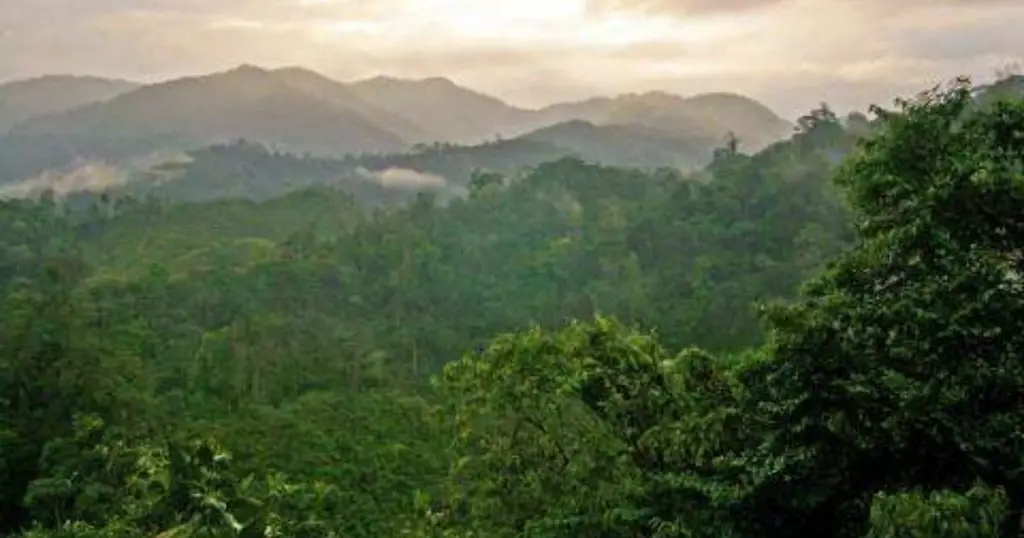 She could not prove this, but she did not doubt the correctness of her guess, as if the guest had admitted aloud the fact of deceit.
She could not prove this, but she did not doubt the correctness of her guess, as if the guest had admitted aloud the fact of deceit.
— We are so happy that Ramon came with his wife. Family people manage to achieve more here than single people.
— Really? Ana asked to keep the conversation going. nine0003
– The woman does not allow the man to descend. An unmarried white man has too many temptations. Faustina raised her eyebrows.
Ana saw several fair-skinned, light-eyed children on the plantation. When she started a conversation about this with the brothers, they joked that Severo was thus increasing the number of slaves. She found their explanation implausible because not enough time had passed. And now it occurred to Anya that Don Luis might be the father of these children. She imagined with horror how a huge man rapes the slaves she knew from the plantation. Her anger grew. nine0003
“Single men fall prey to the green serpent,” Faustina blurted out, embarrassed by her own allusions. They play cards and spend all day at cockfights. Much of the property in the county passed to new owners not in the traditional way, but as debt repayments—mostly recoupment of losses.
They play cards and spend all day at cockfights. Much of the property in the county passed to new owners not in the traditional way, but as debt repayments—mostly recoupment of losses.
Is that how Don Rodrigo increased his fifteen cuerdas to the current size?
The visitor became agitated, as if Ana had violated the rules of small talk with her direct question. nine0003
— Uh… no… yes… I’m not sure… Oh my God, what a question!
– I didn’t mean to offend anyone.
– Of course, it’s just … Although, I think you’re right. Most of the locals… everything they own, you understand… land and slaves… and, by the way, land is the only thing that does not grow on our island. Faustina laughed merrily at her own joke, and Ana smiled involuntarily, guessing that her guest laughed often, though not always with joy.
– I understand.
– I’m the only one talking! Faustina looked expectantly at her hostess. “Our husbands have already become friends,” she continued, embarrassed by Ana’s silence.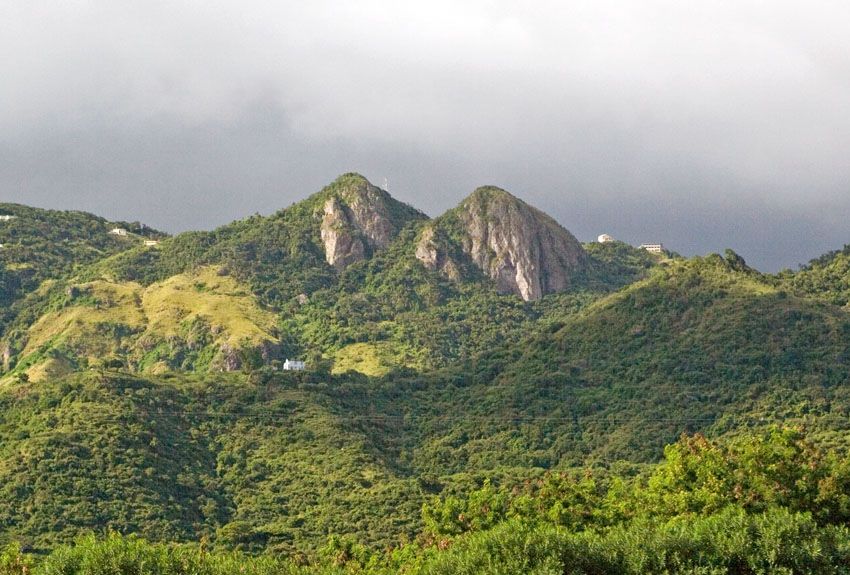 “Severo brought Don Ramon and his brother to us in San Bernaba just a few days after you arrived. nine0003
“Severo brought Don Ramon and his brother to us in San Bernaba just a few days after you arrived. nine0003
— Did you also know him before we arrived?
– Yes. Don Rodrigo sent him to check on the progress of the hacienda. He introduced himself to us a couple of years ago. He knows everyone here.
— Really?
– Uh-uh… yes. He is very… enterprising.
– What do you mean?
— Oh my God! You will think that I love to gossip. Faustina laughed again.
“No, no,” said Ana. “I am grateful to you for telling me about Don Rodrigo. We had no idea of his hopes for the arrival of Ramon and Inocente. Their parents didn’t know it either. The brothers will be glad to hear that their uncle has set up the plantation thinking of them as successors. nine0003
– He told Louis about it several times.
— And Severo Fuentes? Ana asked casually, without looking up from the frayed cuff she was repairing.
“Well, you hired him,” Faustina answered and fell silent, waiting for Ana’s reaction, who did not take her eyes off her uneven stitches.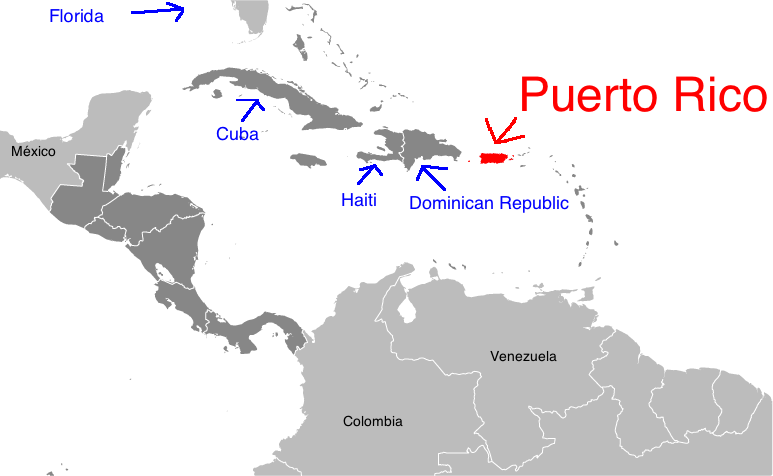 “He manages well with the workers,” the guest added. “And he has excellent relations with ship captains…
“He manages well with the workers,” the guest added. “And he has excellent relations with ship captains…
“Yes, we know,” Ana confirmed.
Severo has already saved Los Jemelos hundreds of pesos in customs duties and taxes by buying slaves and other goods brought by sea from the bay south of the plantation. nine0003
“If it weren’t for his connections,” Faustina burst into a happy laugh, “I wouldn’t have seen such a thin thread for knitting. And she picked up her work, intricate lacework.
Ana was not too surprised that their manager also supplied San Bernabé with goods, and she was sure that in addition to silk thread, he sold a lot of things to Luis and Faustina. In addition to his gift for finding slaves when no one else could, Severo also got things that you would not find in San Juan by day with fire. José would not have made even half of his products if Severo had not provided his workshop with tools from North America. He bought for Los Jemelos a cask of fine Spanish olive oil, a cask of sherry, some cast-iron pots for the kitchen, a new knave, all at very reasonable prices. nine0003
nine0003
In addition to items needed for production, Ana also included personal items in her shopping list, such as Florida Water, which she added to bathing water, and the brothers used aftershave, bed and table linen, muslin and stationery. The first time she handed him the list, she said she didn’t expect to get everything she wanted.
Bahasa Indonesia (Bahasa Indonesia)Bahasa Malaysia (Malay)Čeština (Czech)Dansk (Danish)Deutsch (German)English (English)Español (Spanish)繁體中文 (Chinese (Traditional))Français (Français) 한국어 (Korean)Italiano (Italian)简体中文 (Chinese (Simplified))Nederlands (Dutch)日本語 (Japanese)Norsk (Norwegian)Polski (Polish)Português (Portuguese)Română (Romanian)English (Tagalog)ภาษาไทย (Thai)Türkçe (Turkish)العربية (Arabic)
عفواً، لم نتمكن من العثوَ Wedج المحاولة مرة خرى للصص اليا# أو الال لـship imesز المς nderد مuzz المlfutyles
Omlouváme se, nemůžeme najít stránku, kterou hledate.
 Zkuste se vrátit zpátky na předchozí stránku, nebo se podívejte do našeho Centra nápovědy pro více informací
Zkuste se vrátit zpátky na předchozí stránku, nebo se podívejte do našeho Centra nápovědy pro více informací
Prejít do informačního kanálu
Vi kan desværre ikke finde den side, du leder efter. Gå tilbage til den forrige side, eller besøg Hjælp for at få flere oplysninger
Gå til dit feed
Die gewünschte Seite konnte leider nicht gefunden werden. Versuchen Sie, zur vorherigen Seite zurückzukehren, or besuchen Sie unseren Hilfebereich, um mehr zu erfahren.
Zu Ihrem Feed
Uh oh, we can’t seem to find the page you’re looking for. Try going back to the previous page or see our Help Center for more information
Go to your feed
nine0183 Vaya, parece que no podemos encontrar la pagina que buscas. Intenta volver a la página anterior o visita nuestro Centro de ayuda para más información.
Ir a tu feed
Nous ne trouvons pas la page que vous recherchez.
 Essayez de retourner à la page précédente ou consultez notre assistance clientèle pour plus d’informations
Essayez de retourner à la page précédente ou consultez notre assistance clientèle pour plus d’informations
Ouvrez votre fil
Maaf, sepertinya kami tidak dapat menemukan halaman yang Anda cari. Coba kembali ke halaman sebelumnya atau lihat Pusat Bantuan kami untuk informasi lebih lanjut
Buka feed Anda
Non abbiamo trovato la pagina che stai cercando. Prova a tornare alla pagina precedente o visita il nostro Centro assistenza per saperne di più.
Vai al tuo feed
申し訳 あり ませ ん お 探し の ページ 見つかり ませ ん。 前 の ページ 戻る か 、 ヘルプセンター で を ご 確認 ください
원하시는 이전 페이지로 돌아가거나 고객센터에서 자세히 알아보세요.
홈으로 가기
nine0183 Harap maaf, kami tidak dapat menemui laman yang ingin anda cari. Cuba kembali ke laman sebelumnya atau lihat Pusat Bantuan kami untuk maklumat lanjut
Pergi ke suapan
De pagina waar u naar op zoek bent, kan niet worden gevonden.
 Probeer terug te gaan naar de vorige pagina of bezoek het Help Center voor meer informatie
Probeer terug te gaan naar de vorige pagina of bezoek het Help Center voor meer informatie
Ga naar uw feed
Vi finner ikke siden du leter etter. Gå tilbake til forrige side eller besøk vår brukerstøtte for mer informasjon
Gåtil din feed
Nie możemy znaleźć strony, ktorej szukasz. Spróbuj wrócić do poprzedniej strony lub nasze Centrum pomocy, aby uzyskać więcej informacji
Przejdź do swojego kanalu
A página que você está procurando não foi encontrada. Volte para a página anterior ou visite nossa Central de Ajuda para mais informações
Voltar para seu feed
Ne pare rău, nu găsim pagina pe care o căutatţi. Reveniţi la pagina anterioară sau consultaţi Centrul nostru de asistenţă pentru mai multe informaţii
Accesati fluxul dvs.
The page you are looking for cannot be found.

 Britton Trail
Britton Trail